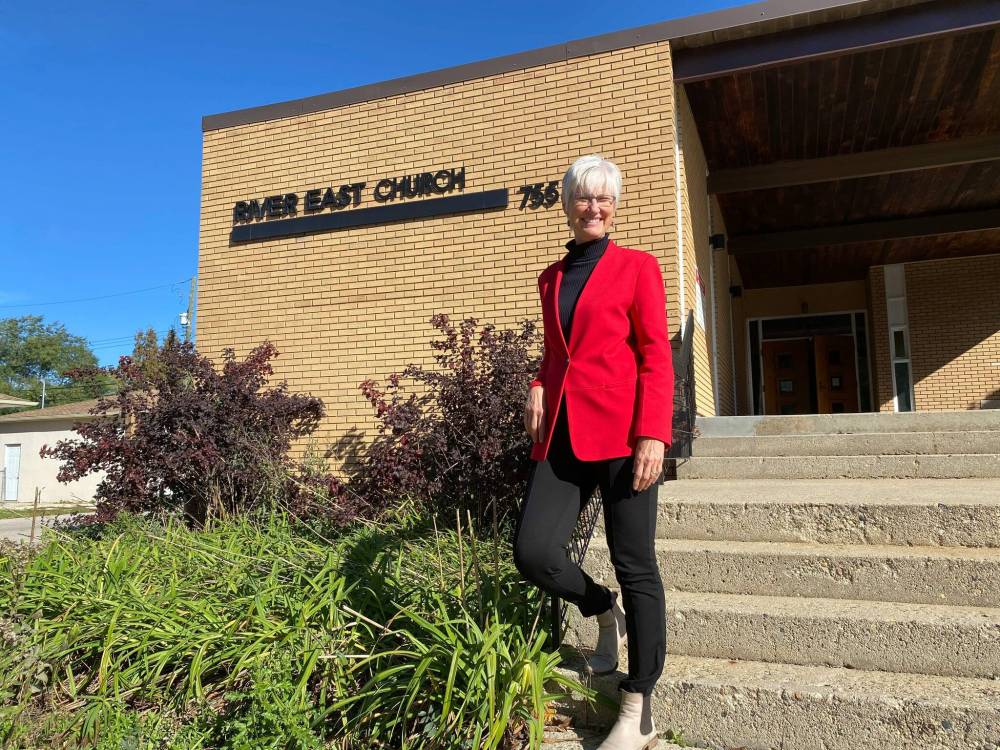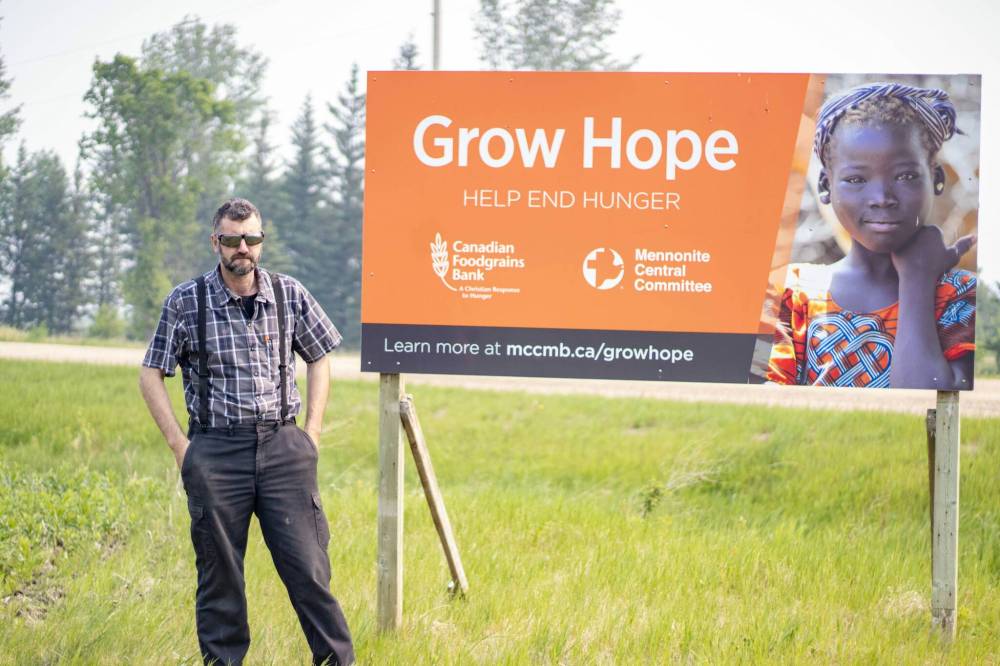Planting the seed
MCC Manitoba’s Grow Hope campaign marks 10th anniversary
Advertisement
For the past 10 years, the Mennonite Central Committee of Manitoba has been bringing urban residents and rural farmers together to help address global food insecurity.
“Grow Hope is an annual food security program of MCC,” said Darryl Loewen, MCC Manitoba’s executive director. “The proceeds are … distributed broadly in the category of food security: one would be food acute food security, and the other would be crisis relief.”
Since 2015, Grow Hope in Manitoba has raised $1.92 million for the MCC’s account at the Canadian Foodgrains Bank. Each year, the federal government matches donations at a minimum 1:1 ratio, though at times the federal contribution has gone as high as 4:1.

Photo by Sheldon Birnie
Mary Anne Isaak (pictured) is a pastor at River East Church (755 McLeod Ave.). For the past 10 years, River East Church has contributed to MCC Manitoba’s Grow Hope campaign, which connects urban residents with farmers, in order to support growing crops for the Canadian Foodgrains Bank, in order to help address food insecurity globally.
“With a partial count for this year, we’re at $124,000, and hope to get to about $150,000 in donated dollars,” Loewen said.
The program uses funds from urban donors, a mix of individuals and Mennonite congregations, with producers from across the province. Funds raised go towards covering the cost of inputs for grain crops in the spring, with the harvest donated in the fall.
“The growers vary from year to year, it’s been six or seven pretty consistently the last few years,” Loewen said. “The number of churches also varies, but there’s a handful of six to eight congregations who respond and participate with supports, and there are hundreds individuals across the province who support it annually, as well.”
River East Church (755 McLeod Ave.) has been involved since the get-go.
“River East is always looking for ways … we make a difference,” Mary Anne Isaak, a pastor at River East, said. “This is a program that if we donate money, the farmers will use that to make their inputs and if it’s a good crop, it’s multiplied many times. It’s a good deal. It’s making a difference for people who are hungry.”
Not only does the program have a tangible impact for hungry people around the world, but also provides many in the congregation with a link to the past.
“We’re an urban church, but a lot of people have memories of growing up on a farm,” Isaak said. “It’s a bit nostalgic. I didn’t grow up on the farm, but my parents did. This kind of taps into that nostalgia. It’s a feel-good way of helping.”
Isaak said the program also allows the congregation at River East to make a tangible difference in the world at a time when things can seem very dark.

Supplied photo by Josh Paetkau/MCC
Grow Hope farmer Joseph Hofer from Greenwald Hutterite Colony.
“You read the news, and it can be really depressing. You feel like, I can’t do anything to make a difference,” she said. “(But) we do our part as a group, which is then connected to a larger group, which is connected to a larger group. That sense of expanding impact, it says that the bad news isn’t the only story.”
“One thing we love about grow hope is how it connects a precise local program to a global challenge of food insecurity,” Loewen added. “It makes it tangible.”
To thank both supporters and growers, and to mark the program’s 10th anniversary, MCC Manitoba will host a private celebration with invited guests on Sunday, Nov. 2 at Canadian Mennonite University.
“We also try to bring folks together with events that give thanks for the results,” Loewen said. “There’s an appreciation for the context, so to gather for a harvest celebration, for example, for farmers and supporters to share stories, sing hymns of thanks, and appreciate the work is a really good connection. It’s a teachable moment for a lot of people.”
While the harvest is coming to a close in the coming weeks, Loewen added that donations to the program can be made at any time. Visit mcc.org or call 204-261-6381 for more information.

Sheldon Birnie
Community Journalist
Sheldon Birnie is a reporter/photographer for the Free Press Community Review. The author of Missing Like Teeth: An Oral History of Winnipeg Underground Rock (1990-2001), his writing has appeared in journals and online platforms across Canada, the U.S. and the U.K. A husband and father of two young children, Sheldon enjoys playing guitar and rec hockey when he can find the time. Email him at sheldon.birnie@freepress.mb.ca Call him at 204-697-7112
Our newsroom depends on a growing audience of readers to power our journalism. If you are not a paid reader, please consider becoming a subscriber.
Our newsroom depends on its audience of readers to power our journalism. Thank you for your support.




